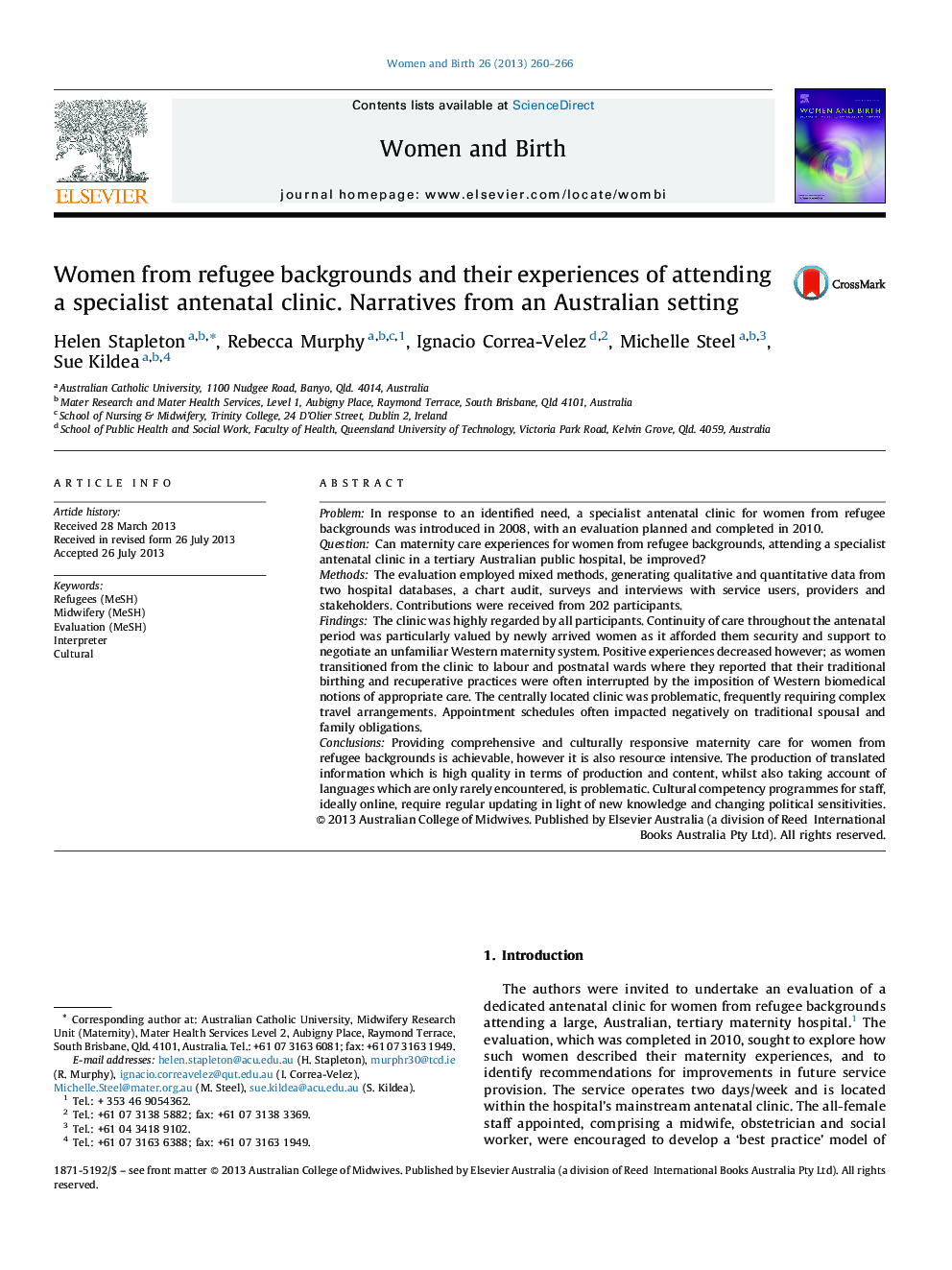| Article ID | Journal | Published Year | Pages | File Type |
|---|---|---|---|---|
| 2636151 | Women and Birth | 2013 | 7 Pages |
ProblemIn response to an identified need, a specialist antenatal clinic for women from refugee backgrounds was introduced in 2008, with an evaluation planned and completed in 2010.QuestionCan maternity care experiences for women from refugee backgrounds, attending a specialist antenatal clinic in a tertiary Australian public hospital, be improved?MethodsThe evaluation employed mixed methods, generating qualitative and quantitative data from two hospital databases, a chart audit, surveys and interviews with service users, providers and stakeholders. Contributions were received from 202 participants.FindingsThe clinic was highly regarded by all participants. Continuity of care throughout the antenatal period was particularly valued by newly arrived women as it afforded them security and support to negotiate an unfamiliar Western maternity system. Positive experiences decreased however; as women transitioned from the clinic to labour and postnatal wards where they reported that their traditional birthing and recuperative practices were often interrupted by the imposition of Western biomedical notions of appropriate care. The centrally located clinic was problematic, frequently requiring complex travel arrangements. Appointment schedules often impacted negatively on traditional spousal and family obligations.ConclusionsProviding comprehensive and culturally responsive maternity care for women from refugee backgrounds is achievable, however it is also resource intensive. The production of translated information which is high quality in terms of production and content, whilst also taking account of languages which are only rarely encountered, is problematic. Cultural competency programmes for staff, ideally online, require regular updating in light of new knowledge and changing political sensitivities.
